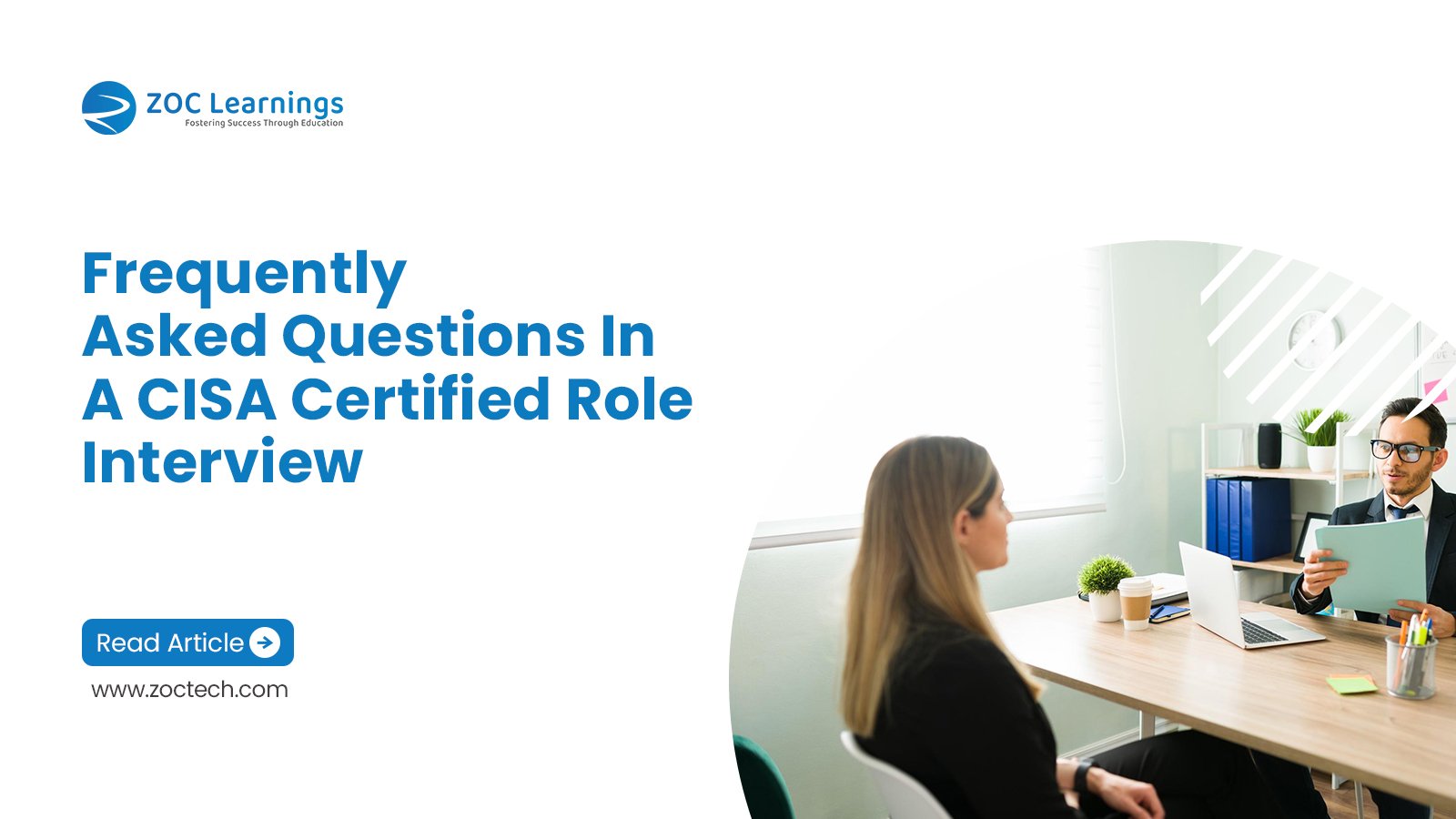With the growing popularity of technological tools and information systems (IS) by leaps and bounds, they have become a mainstay across industries. As the dark cloud of cyberattacks looms over our heads, the need for promising professional certifications that ensure business safety has become a priority. Here is where ISACA offers the Certified Information Systems Auditor (CISA), a globally recognized accreditation for IS auditors.
A Basic Outline Of The CISA Course
Under the CISA course’s wide umbrella, individuals are equipped to learn about the following domains:
- Information Systems Auditing Process
- Governance and Management of Information Technology
- Information Systems Acquisition, Development and Implementation
- Information Systems Operations and Business Resilience
- Protection of Information Assets
What Does It Take To Become CISA Certified?
The CISA course is a highly sought after credential for IT professionals who want to build a career in information systems auditing, control, and security. It is of immense value for IT professionals looking to climb the ladder of success by expanding the horizon of career opportunities. Clearing the CISA exam and obtaining the certification opens the gateway to recruiters. An individual is required to fulfill the following qualifications to become CISA certified:
- Pass the certification exam (score a minimum of 400 out of 800).
- Pay an application processing fee on the ISACA website.
- Apply and provide substantiation of the necessary experience.
- Adhere to the Code of Professional Ethics and the Code of Professional Education Policy.
- Ensure compliance with Information Systems Auditing Standards.

Unlock Your Career Potential - Get Certified with CISA!
To Tap Into These Career Opportunities With A CISA Certification
Let’s explore some career opportunities that are available to professionals with a CISA certification:
- Information Systems Auditor: An IT auditor is the most common path for a CISA-certified professional. As an auditor, you will be accountable for assessing the effectiveness of an organization’s IT systems and controls. The job profile also includes identifying vulnerabilities or any potential risks and providing recommendations for improvements.
- Information Security Analyst: Information security has taken precedence in businesses of all sizes, and who better to provide solutions than CISA-certified professionals? As an Information Security Analyst, your primary task is implementing security measures, conducting risk assessments, and monitoring network activity to prevent and detect cybersecurity threats.
- IT Project Manager: An IT project manager’s key objective is to develop and maintain IT projects according to the company’s time, cost, and scope. Their main responsibilities are setting milestones, project planning, communication planning, and assigning tasks to team members.
- Compliance Analyst: It is mandatory for many organizations to adhere to regulatory compliance, particularly in industries such as healthcare and finance. A CISA-certified professional can help ensure an organization’s IT systems and processes are in compliance with applicable laws and regulations.
- IT Risk Manager: Functions such as identifying, assessing, and mitigating risks associated with an organization’s IT systems and processes fall under the ambit of IT risk management. A CISA-certified professional is fitting for this role, given their expertise in assessing IT controls and identifying vulnerabilities. They ensure IT systems are structured to support the company’s business objectives.
- IT Consultant: CISA-certified professionals are well-positioned to work as IT consultants and provide expert advice to organizations on making their IT systems and processes foolproof. Certain responsibilities include conducting risk assessments, implementing security measures, and ensuring regulatory compliance. IT consultants analyze a company’s IT infrastructure, understand a client’s business needs, and implement technological solutions accordingly.
- Chief Information Officer (CIO): A CIO controls a company’s IT organizations’s team, processes, and technologies to ensure they deliver results which conform to the company’s goals.
Apart from a plethora of career opportunities to choose from, employees may consider the perks that come with a CISA certification. Some benefits include a 22% boost after acquiring a CISA certification, leveraging this credential to scale up the corporate ladder, and the ability to gain global exposure. At the same time, you stand at the forefront of a business world that is constantly evolving. If you find these advantages enticing and are looking forward to applying for this certification, a mandatory 5 years of experience in IS/IT Audit, Control, Security, and Assurance is the only CISA certification eligibility criteria you require.
What Makes ZOC LEARNINGS Click?
Overall, a CISA certification opens up many career opportunities. As technology plays a crucial role in business operations, the demand for qualified professionals with CISA certification continues to remain strong. To get started on the CISA training program, ensure you choose the right education partner with a high pass rate, the best training facilities, and a rich repository of study materials, question banks, mock test papers and study kits.
Set out on your learning journey with Zoc Learnings, one of the leading training partners in India, by clicking here.
FAQs
Q1: What is the CISA certification?
A1: The CISA certification, or Certified Information Systems Auditor, is a globally recognized certification for professionals who audit, control, monitor, and assess information technology and business systems’ vulnerabilities and risks.
Q2: How can I become CISA certified?
A2: To become CISA certified, you need to meet the eligibility requirements, which typically include relevant work experience, and then pass the CISA exam, which covers various domains related to information systems auditing and control.
Q3: What are the benefits of obtaining a CISA certification?
A3: A CISA certification can enhance your career by opening up opportunities in information systems auditing, risk management, and cybersecurity. It demonstrates your expertise in assessing and managing IT risks, making you a valuable asset to organizations.
Q4: How long is the CISA certification valid?
A4: The CISA certification is valid for three years. To maintain your certification, you must earn continuing professional education (CPE) credits and adhere to the ISACA Code of Professional Ethics.
Q5: What are the key domains covered in the CISA exam?
A5: The CISA exam consists of five domains:
- Information Systems Auditing Process
- Governance and Management of IT
- Information Systems Acquisition, Development, and Implementation
- Information Systems Operations, Maintenance, and Service Management
- Protection of Information Assets










